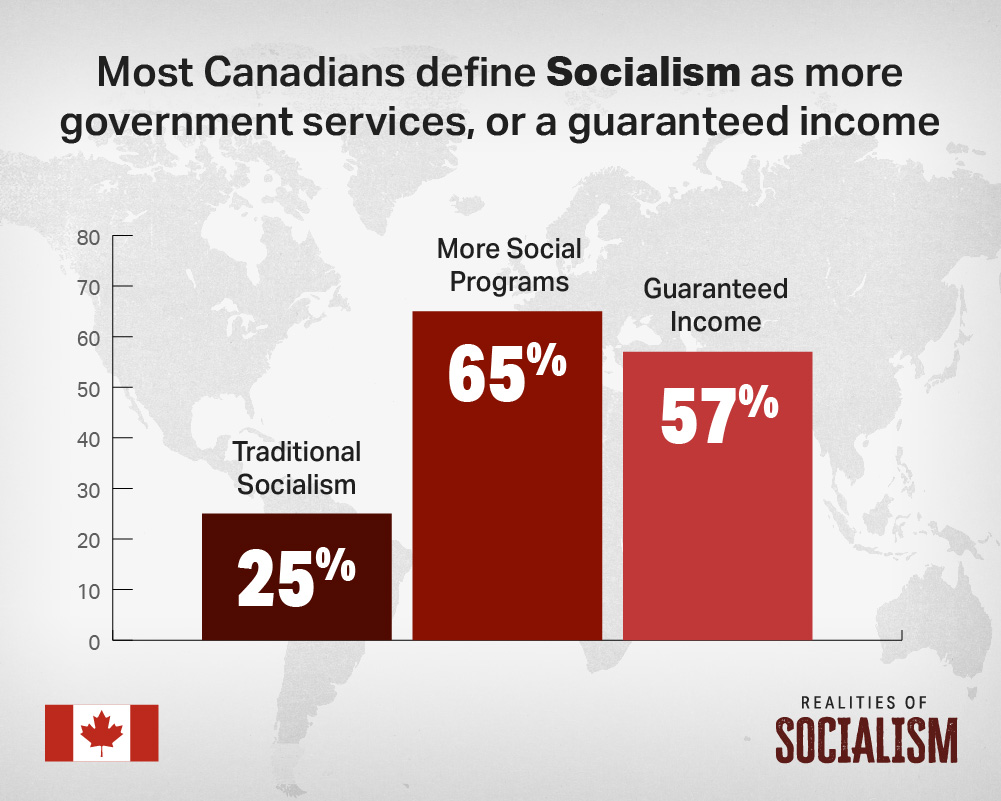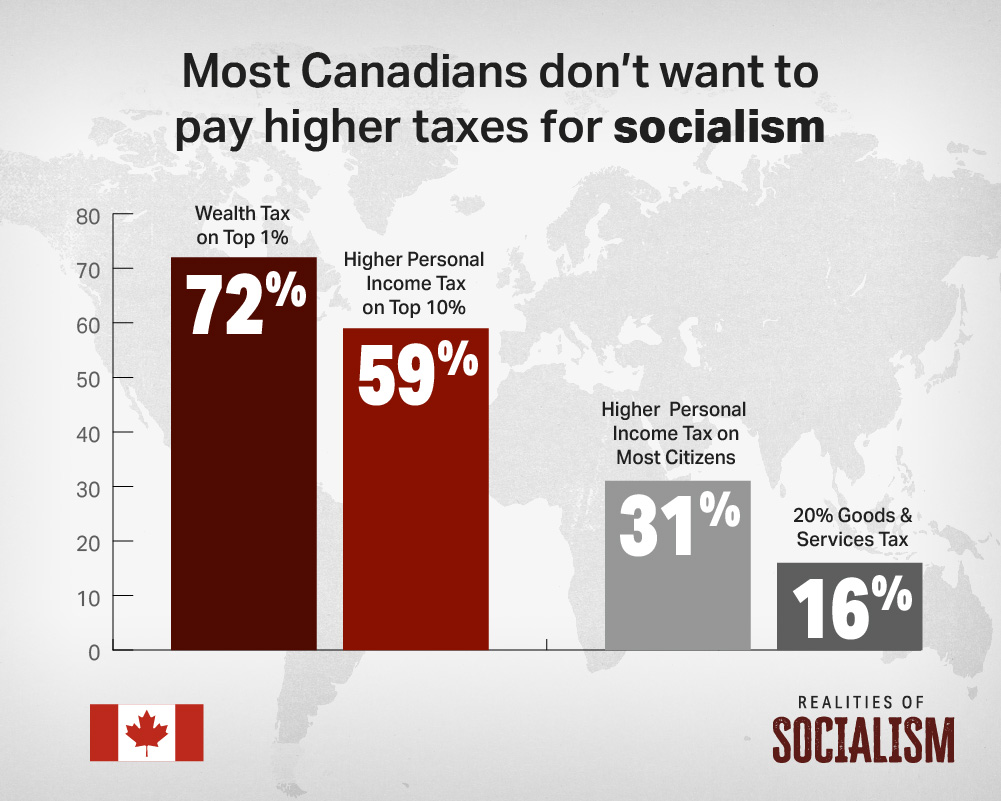With many defining socialism as ‘more social programs’ – something that actually depends on a strong free market economy – a large segment of the population has a naïve view of socialist ideology.
The Union of Soviet Socialist Republics is often dismissed these days as ‘not real communism.’
The same is said about North Korea, a ruthless closed socialist state.
Indeed, despite the socialist ideology having led to many of the most brutal regimes of all time, socialism has been effectively rebranded.
The ruthless centralization of power, the inability to respond to market signals, the restriction on free expression and freedom of worship, were all hallmarks of the largest socialist regimes.
But now, many see socialism as ‘the government helping people.’
So, it’s unsurprising – though still disturbing – to see how many Canadians expressed support for socialism in a new poll conducted for the Fraser Institute:

Yet, when asked to defined socialism, things get a bit interesting:

As the Fraser Institute notes, there is relatively minimal support for socialism when it’s described as the state owning the means of production:
“Several key insights can be drawn from how respondents defined “socialism”. First, support for the traditional definition of socialism as the state owning the means of production, or as phrased in the survey as “the government taking control of companies and industries so that the state rather than individuals control the economy”, had the least support of the three definitions provided.”
The irony here is that well-funded social programs tend to require a strong free market economy to generate the revenue to fund those programs.
Even countries seen as ‘socialist’ – such as the Scandinavian states – often have a combination of large resources deposits (Norway’s immense oil reserves) alongside private ownership and large private sector corporations.
In fact, the Nordic countries are becoming less socialist over time:
“Nordic countries are often used internationally to prove that socialism works. It’s true that social democratic parties are enjoying success in this part of the world. Yet while Nordic countries are seeing a partial comeback for social democratic parties, their policies aren’t in fact socialist, but centrist.
Nordic nations—and especially Sweden—did embrace socialism between around 1970 and 1990. During the past 30 years, however, both conservative and social democratic-led governments have moved toward the center. Today, the Nordic social democrats have adopted stricter immigration policies, tightened eligibility requirements for welfare benefit systems, taken a tougher stance on crime, and carried out business-friendly policies.”
Finally, the poll also shows most Canadians don’t want to pay more taxes for socialism:

Sure, Canadians want ‘others’ to pay for it, but most don’t want to pay for it themselves.
When we consider all of the responses together, Canadians seem to define socialism as more generous social programs paid for by somebody else.
Of course, a point lost on many adherents to actual socialist ideology is the fact that a strong private sector is essential to generating the revenue that pays for social programs.
Overall, the survey shows a majority of Canadians still prefer capitalism to socialism, though the results are close enough that supporters of capitalism need to start speaking up in favour of free markets and economic freedom before the siren song of socialism lures even more away from reality and common-sense.
"(X) is the ideal economic system"
Capitalism: 52%
Socialism: 42%
Communism: 6%
Fascism: 4%Leger / October 31, 2022 / n=4037 / Online
(Commissioned by the Fraser Institute)
— Polling Canada (@CanadianPolling) February 23, 2023
Spencer Fernando
